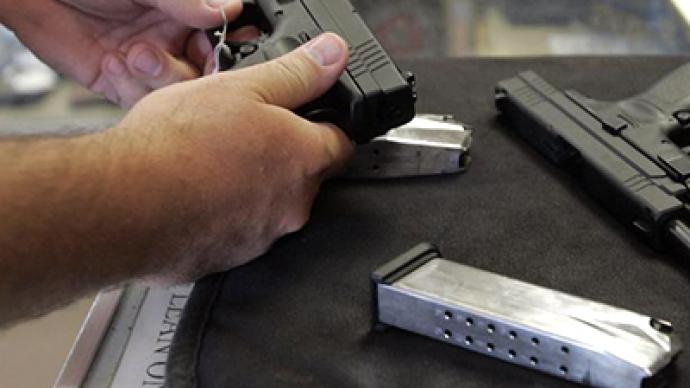'There's no logic to it' - experts slam new gun control bill

Congress is weighing a proposed ban on assault weapons introduced in hopes of curbing the spreading epidemic of mass shootings in America, but the language of the law could still allow for a lot of heavy-duty firearms to be legally bought and sold.
Last year’s tragic massacre in Newtown, Connecticut is being considered the catalyst in approving some sort of firearm law reform, but Second Amendment advocates have called into question the constitutionality of approving any such bill that could be seen as a direct attack on the right to bear arms. A recent proposal courtesy of Sen. Dianne Feinstein (D-California) has been touted around Washington as a possible solution to the rash of gun violence that has swept America before and since the Newtown shooting, but a new analysis of the proposal suggests that the law could only do so much to keep guns off the streets. If approved, Sen. Feinstein’s proposal would ban the buying and selling of 157 specific firearms designed for military and law enforcement use. “The purpose is to dry up the supply of these weapons over time, therefore there is no sunset on this bill,” she told lawmakers in Washington. Still available for purchase in stores, however, would be roughly 2,200 other makes and models of assault weapons — in some cases nearly identical to weapons being banned. According to a new report by the Associated Press, some weapons that have made the ban list have related models that, while slightly physically different can cause just as much damage."There's no logic to it," says Greg Danas, the president of a Massachusetts-based expert witness business and firearms ballistic laboratory. Commenting to the AP for a report published Monday morning, Mr. Danas questions what could come of a possible gun ban that might be more for show than anything else."What kind of effect is it going to have?" he asks the AP."I can't imagine what the difference is," former FBI agent John Hanlon adds to the AP. Hanlon is the survivor of a 1986 gun battle in Miami that left five injured federal officers injured and two dead. But while Sen. Feinstein’s bill would ban the retailing of one mode of the Ruger .223 caliber Mini-14 that almost killed him, a different version that isn’t as compact is actually exempt: despite different classifications in the eyes of Congress, both models can be equipped with detachable magazines that hold dozens of rounds of ammunition. "What a joke," says Hanlon."It's irrelevant," adds Edmund Mireles, a fellow FBI agent who survived the Miami shootout. "They're equally dangerous."Sen. Feinstein has explained her proposal as one designed to "make crystal clear" to Americans that hunters and sportsman would not have their guns seized by a partial firearm-ban. Adding to the AP’s report, though, a former congressional staffer involved in the 1994 gun control debate says the senator’s intentions don’t end right there, though."The other purpose of the list was to have a high profile way of assuring certain folks — including legislators — that we would not be going after their weapons that they use for those legitimate purposes," Lenett says. For comparison, the 1994 federal gun restrictions that Lenett worked on under President Bill Clinton exempted just under 375 weapons from being banned. Sen. Feinstein’s draft protects 2,200 firearms.“Guns designed military use [are] bought all over this country and often used for mass murder. This is really an uphill road. If anyone asked today, ‘Can you win this?’ The answer is, ‘we don’t know,” Feinstein told USA Today last month.














